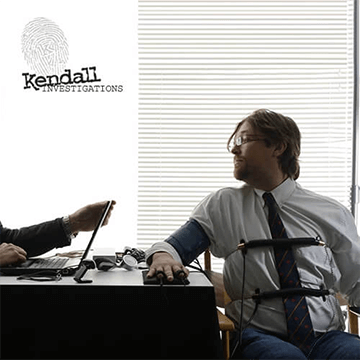
You have likely seen a lie detector test or a polygraph done in the movies or may have heard about police personnel using it for investigations. The primary purpose of carrying out this test is to see whether the individual is telling the truth or lying when answering certain questions. However, in real life, there are some restrictions on how polygraph tests can actually be used, especially in relation to employment
What is a Polygraph Test and How Does it Work?
A polygraph test, also popularly known as the lie detector test, is a procedure performed with the help of a machine called the polygraph. When taking a polygraph test sensors are attached to the subject’s body. Multiple signals from these sensors are detected by the polygraph machine and are recorded by the computer and displayed as a graph for analysis.
The different types of signals that can be analyzed with the help of a polygraph machine are:
- Breathing rate
- Heart rate (pulse)
- Perspiration
The comparison between the signals is made before and after the test. Any major significant change observed in the graph indicates that the person is lying.
Who Can Perform the Polygraph Test?
A polygraph test cannot be performed by just anyone. There are specialized, trained, and certified polygraph examiners who conduct the polygraph test. Kendall Shull is one such private investigator who offers polygraph services. Kendall Shull has attained a Masters’ Degree in Polygraph and is the only person in the world to achieve this qualification. Prior to setting up his private investigation and polygraph firm, Kendall Investigations in 2001, Kendall led the entire polygraph department for the FBI in Washington, DC.
Polygraph Tests & Employment
A private employer cannot require a candidate for employment to take a polygraph test as part of the selection process. However, there are some exceptions for certain occupations and industries. This includes law enforcement agencies and companies who manufacture, distribute or dispense drugs or other controlled substances.
The Employee Polygraph Protection Act (EPPA) is a Federal Law passed in 1988. This law bars most private sector employers from using a polygraph test for carrying out screening before employment or even after employment to check the sincerity of the employee. A private sector company cannot even request or ask consent from the employee for undertaking a polygraph test. The EPPA protects the rights of the employees and their privacy as well.
Employees and job applicants have the right to refuse a polygraph test and employers cannot reject the candidate just merely on the grounds of this.
Employee Polygraph Protection Act & Its Exemptions
- The EPPA images exceptions for people who are employed in government agencies – state, federal, and local.
- Also, security firms, pharmaceuticals companies, drug manufacturers, distributors, and dispensaries are exempt from the Employee Polygraph Protection Act. They can use the polygraph test on employees, but there are certain limitations to how the test can be used.
- Another exception to the EPPA for private organizations is if they feel an employee is suspected to be involved in an incident at the workplace, such as theft that has resulted in monetary losses to the employer.
Uncover the truth!
--
Ken Shull served as a Special Agent with the FBI for almost 25 years and was head of the FBI Polygraph program until his retirement in 2001. At that time he set up the Kendall Investigations practice as a private investigator in Knoxville, TN offering Polygraph services, private investigations, and security guards. Ken is a member of the American Polygraph Association and The American Association of Police Polygraphists.
The Truth is Still the Truth Even if No One Believes it, A Lie is Still a Lie Even if Everyone Believes it.
